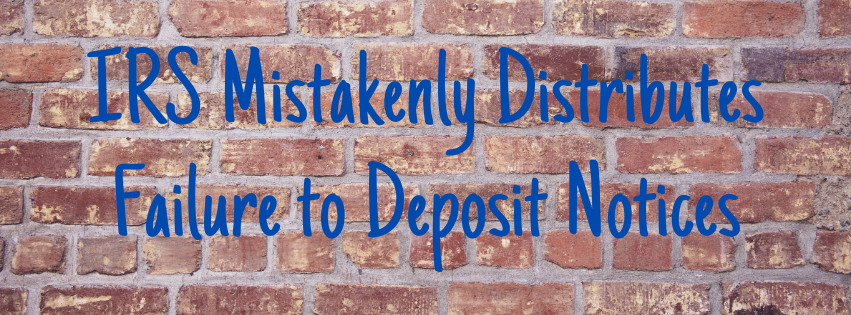The IRS recently sent out a flurry of penalty notices to employers who they claim did not deposit adequate funds with their quarterly Form 941 filings. This has left many small business owners scrambling to find out what happened and decide how to remedy the situation. Luckily, according to Tax Pro Today, the IRS will be reneging on some of these penalties for businesses who reduced their quarterly payment in anticipation of claiming tax credits they are eligible for under the CARES Act.
The CARES Act
What we detailed in our past article here, was an economic stimulus package passed by the Senate in March. It provided notable financial provisions for small businesses trying to stay afloat during the Coronavirus pandemic; one of the most notable items in the bill was an employee retention credit to companies whose businesses were partially or fully suspended due to Coronavirus. It also outlined sick and family leave credits for employees who experienced school closures, lack of childcare, and COVID-19 illness in their families. You can read more about these credits here.
In anticipation of claiming some of these credits,
Many small business owners reduced their quarterly payments and were surprised to receive the recent penalty notice distributed by the IRS. Fortunately, since the notices were sent out, the IRS addressed the issue, saying that “the IRS is aware that a small population of employers that reduced their tax deposits in anticipation of claiming the sick and family leave credits, or employee retention credit, may have received a notice stating there was a failure to deposit penalty applicable to the Form 941 on which the credits were claimed.” They cited Notice 2020-22, confirming that employers who planned to claim the tax credits were able to reduce their deposits through the tax period by as much as the credit amount. “However,” they continued, “in reporting the schedule of liabilities on Form 941, the reported liabilities did not match the reduction in deposits for every pay date. In these situations, they incurred a failure to deposit penalty on the difference in the reported liabilities and the reduced deposits.”
The IRS plans to fix this issue by contacting business owners who received the penalty notice incorrectly and implementing new rules that will safeguard companies that are reducing their payments in response to the Notice from receiving failure to deposit letters in the future. In addition, they are refraining from sending out more balance-due notices until they are caught up with the backlog of mail they received while employees were working remotely. This will help to ensure that taxpayers who have already filed by mail will not receive warnings due to their taxes not being processed promptly.
This announcement comes as a sigh of relief to many small business owners, but if you have not been contacted and are unsure about reporting liabilities when reducing deposits, you can visit IRS.gov/form941 for guidance.
